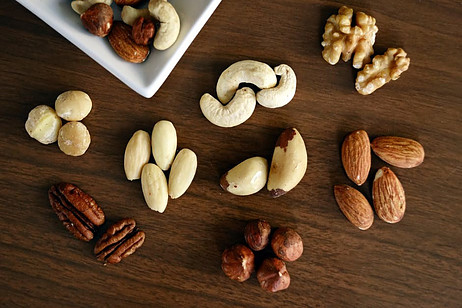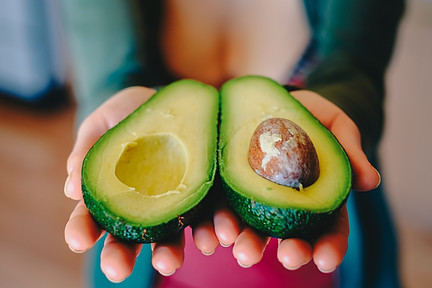Do you want to try the ketogenic diet but are worried about your health? Is a ketogenic diet dangerous or safe for those with health issues? What should you pay attention to or be on the lookout for?
This is a must-read for anybody who has ever wondered, “Is ketosis harmful or even dangerous?”
Learn how to get into ketosis and how it differs from the hazardous ketoacidosis in this article.
“Is the keto diet dangerous?” is a frequently asked question.
There are common misconceptions due to ketoacidosis, but in fact, it isn’t necessarily related to the keto diet.
It’s time to clear the air and dispel some myths around ketosis safety.
Misconceptions About Ketosis
In nutritional science, there is no such thing as an absolute. Ketogenic diets, like any other diet, are never 100% safe and healthy. Even with the keto diet, there are dangers and side effects; you must determine for yourself if the advantages of a ketogenic diet outweigh the risks.
However, there are a lot of misconceptions about ketosis being harmful or bad for you. The most frequent misconceptions regarding ketosis, such as why it’s dangerous or harmful, are mostly based on incorrect information.
We’ll go through and clarify the most frequent misconceptions about ketosis so you can answer the question, “Is ketosis dangerous?”
Here are some most common misconceptions about ketosis and why it’s considered so hazardous or unhealthy…
Misconception #1: Keto Is Not Good for the Kidneys
High-protein diets are frequently associated with an increased risk of kidney disease, and ketogenic diets are occasionally included in this group.
In reality, the keto diet is low in protein and rich in healthy fats (avocado, coconut oil, MCT oil, and olive oil), with a modest quantity of protein that won’t overburden your system.
For more information, check out this article: How Much Protein Should You Eat on the Keto Diet?
Misconception #2: You Are Not Getting Enough Fiber
There is a common misconception that a ketogenic diet consists solely of meat and butter.
A correctly executed ketogenic diet is not only healthy in the short and long term, but it also offers all the vitamins your body needs (even if certain food groups are removed from your diet).
Keto emphasizes a nutritious diet rich in whole foods, leafy green vegetables, and salads, all of which are high in fiber.
Make sure you download our free list of ketogenic foods so you always have the right foods in the house for your keto diet success.
Misconception #3: You Will Get Gallstones From the Ketogenic Diet
When a gallbladder is inactive, it is more prone to stone formation because it is regularly flushed out and its contents are regenerated, whereas when it is active, its contents are inactive.
However, as fats are processed, the gall bladder becomes active! Because a person on a ketogenic diet develops gallstones doesn’t indicate the ketogenic diet is to blame, because a lot of fat gets digested here.
People who tend to start a ketogenic diet are usually attempting to lose weight. They may have been on a low-fat diet in the past. With a very low-fat diet, the gallbladder is “idle”: no fat implies no activity, which causes stone development.
This also implies that even if you transition to a ketogenic diet, you may still have to deal with gallstones, which could have developed BEFORE you started your ketogenic diet.
So, rather than just asking yourself, “Is the ketogenic diet risky for the gallbladder?”, maybe consider what possibly damaging diets you were on before making the transition.
Misconception #4: The Ketogenic Diet Causes Heart Disease
You’ve heard that fat, particularly saturated fat, can lead to artery hardening and heart disease.
However, recent data suggests that the short-term health advantages of a high-fat diet include a favorable influence on cardiovascular health.
The same study found that when compared to those on a high-carbohydrate, low-fat diet, those on the keto diet had superior sleep and cognitive performance.
Obesity, high cholesterol, type 1 diabetes, type 2 diabetes, blood glucose levels, and neurological illnesses such as Alzheimer’s and Parkinson’s have also shown promising outcomes with the ketogenic diet.
Misconception #5: You Lose Muscle on Keto
Muscle loss shouldn’t be an issue if you stick to your macros and maintain your fat intake high while keeping your protein intake moderate, which is the cornerstone of a good ketosis condition.
Without even focusing on your lean muscle mass, your body will continue to burn ketones for fuel.
Nutritional ketosis actually aids in the preservation of muscle tissue by preventing it from deteriorating.
Difference Between Ketosis and Ketoacidosis
Ketoacidosis is one of the main reasons people start to ask, “Is ketosis safe?”
Although the names are so similar, ketosis and ketoacidosis have major differences.
Here are the basic definitions:
Ketosis is a natural process in which the body switches from burning glucose to burning ketones for energy.
Ketoacidosis is a severe metabolic disease that can develop in type 1 diabetics if their insulin levels and diet are not adequately managed. Diabetic ketoacidosis, or DKA, is another name for this condition.
Diabetics who are ill can get DKA. In either case, the blood contains abnormally high amounts of ketones, which cause the blood to turn acidic.
Ketosis, on the other hand, is a healthy alteration in how the body burns energy brought on by dietary changes.
Carbohydrates (glucose) are the main source of energy in a typical diet. When you follow a very low carbohydrate diet, moderate protein, high fat ketogenic diet, your body begins to transition from carbs to fat (which is converted to ketones in the liver) and releases ketone bodies, which are utilized as the major fuel source.
Ketosis is not only a natural bodily process that is harmless, but it is also beneficial in a number of ways that will be discussed further below.
Responsible Ketosis
Contrary to the common misconceptions mentioned above, there are several advantages to adopting a ketogenic diet and achieving ketosis in your body.
Whether you’re new to the ketogenic diet or have been doing so for a while, it’s always a good idea to enter ketosis in the healthiest (and safest) way possible.
Start Keto Safely
It’s critical to ensure that you’re getting enough calories and that you’re getting the right balance of carbs, proteins, and fats. The amounts vary somewhat from person to person, but you must ensure that your fat intake is high – and your protein intake is reasonable – this is the secret to ketosis.
The amounts vary somewhat from person to person, but you must ensure that your fat intake is high – and your protein intake is reasonable – this is the secret to ketosis.
Before you begin your ketogenic diet, make sure you download the free Keto-Food List! Download the free PDF with all the important ketogenic foods now to get a complete idea of what you may eat and what you should avoid if you want to get into ketosis. More information may be found here!)
Special Circumstances: When Should You Be Extra Cautious?
For various health problems, precise monitoring is essential! This includes, but is not limited to:
- Issues with the pancreas and/or gallbladder as fat becomes more difficult to digest
- Gastric bypass/Bariatric surgery, which makes fat more difficult to absorb
- Metabolic diseases that cause normal metabolic processes to become more complicated
- Gout
- Pregnancy or breastfeeding
- Children, since their protein requirements differ.
- People who are prone to kidney stones
- Individuals who are extremely thin (BMI of 20 or less) or anorectic, as weight loss is connected with increased hazards for them (anorexia has even been treated with a ketogenic diet by some physicians). Nonetheless, extreme care is urged!)
However, there is no need to be concerned about any negative impacts on your well-being throughout the “changeover” phase; this is entirely natural at the beginning.
The Keto Flu
The only “downside” of ketosis is the early adverse effects that some people suffer during the first 1-2 weeks when their bodies transition from glucose to ketones for energy.

This is often referred to as “keto flu” because it can cause flu-like symptoms, such as:
- Headache
- Irritability
- Lethargy
- Lack of motivation
- Confusion or brain fog
- Fatigue
- Bad breath
This is normal when initially starting a ketogenic diet, or after a cheat meal or carb cycle – your body burns the extra glycogen and shifts back to using fat and ketones for energy.
How to Avoid the Keto Flu
Keto flu symptoms generally go away after one to two weeks. Some folks don’t get the keto flu at all. However, for those who do, there are steps you may do to decrease your chances of experiencing symptoms, such as:
- Consume enough calories and fat: Some people make the error of just eliminating carbs without substituting anything else, such as fat, resulting in an incredibly low-calorie intake that is harmful to hormones and metabolic demands. Maintain a high caloric intake, and your brain will be nourished with lots of nutritious, ketogenic-friendly fats.
- Drink water: It is critical to stay hydrated. Drink 500-800 ml of water first thing in the morning, especially if you drink black coffee, which dehydrates you, and continue to drink water throughout the day. This can assist with headaches and other unpleasant symptoms.
- Exercise: You may not feel like exercising or working out when you’re in ketosis, but regular activity can assist your metabolism switch from carbohydrates to ketones for energy, resulting in fewer keto flu symptoms.
- Increase salt intake: because your kidneys expel more sodium on a ketogenic diet, you may have a nutritional shortage. Try adding pink Himalayan salt to your meals, sipping bone broth throughout the day, eating sea vegetables such as seaweed, cucumbers, and celery, and salted almonds (in moderation).
- Check your ketone levels: Check to see whether you’re already creating ketone bodies by testing your ketone levels. Test your ketone levels frequently to ensure you’re in and remaining in ketosis.
Conclusion
Now that the primary myths and misconceptions have been dispelled, you can see for yourself that ketosis is completely safe and beneficial if you adhere to a well-planned ketogenic diet based on whole foods.
Following a well-balanced keto-friendly meal plan, limiting your carbohydrate intake, and leading a healthy lifestyle will keep you in ketosis, which will help your body operate more efficiently and burn more fat, as well as enhance your health in many ways.
Thanks for reading!
Anna
www.readyforketo.com






